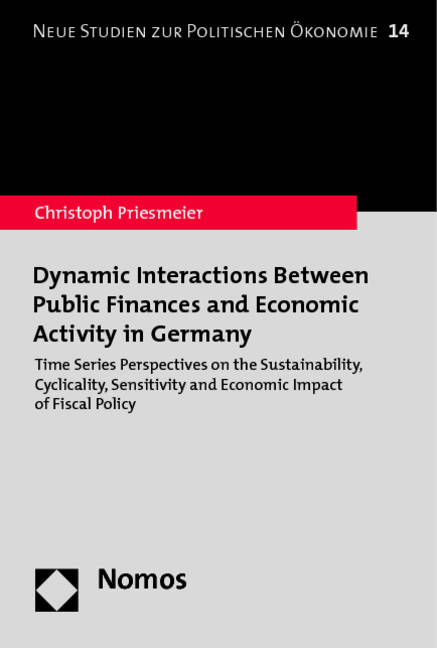
- Afhalen na 1 uur in een winkel met voorraad
- Gratis thuislevering in België vanaf € 30
- Ruim aanbod met 7 miljoen producten
- Afhalen na 1 uur in een winkel met voorraad
- Gratis thuislevering in België vanaf € 30
- Ruim aanbod met 7 miljoen producten
Zoeken
Dynamic Interactions Between Public Finances and Economic Activity in Germany
Time Series Perspectives on the Sustainability, Cyclicality, Sensitivity and Economic Impact of Fiscal Policy
Christoph Priesmeier
€ 34,45
+ 68 punten
Omschrijving
How do German public finances respond to economic developments? And what is the impact of large economic shocks on fiscal sustainability? Vice versa, what is the effect of sustainability restrictions on fiscal stimulus measures? In the context of the ongoing sovereign debt crisis, these questions constitute the core of public finance debates. Based on advanced macro-econometric methods, this study offers new insights to this field. The author shows how expenditure dynamics have been decisive for ruining the sustainability of public finances in Germany and how a debt brake could bring them back on a sustainable path. He demonstrates how static estimation methods fail to detect dynamic relationships between tax bases and tax revenues - especially with respect to profit taxes. Finally, he shows that economic stimuli programmes in Germany have become gradually more pro-cyclical over the last four decades and sustainability restrictions have strong effects on the size of fiscal multipliers.
Specificaties
Betrokkenen
- Auteur(s):
- Uitgeverij:
Inhoud
- Aantal bladzijden:
- 157
- Taal:
- Engels
- Reeks:
- Reeksnummer:
- nr. 14
Eigenschappen
- Productcode (EAN):
- 9783848710928
- Uitvoering:
- Paperback
- Afmetingen:
- 153 mm x 227 mm
- Gewicht:
- 246 g

Alleen bij Standaard Boekhandel
+ 68 punten op je klantenkaart van Standaard Boekhandel
Beoordelingen
We publiceren alleen reviews die voldoen aan de voorwaarden voor reviews. Bekijk onze voorwaarden voor reviews.











